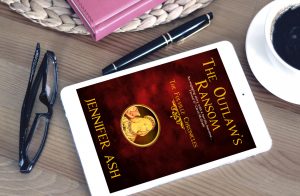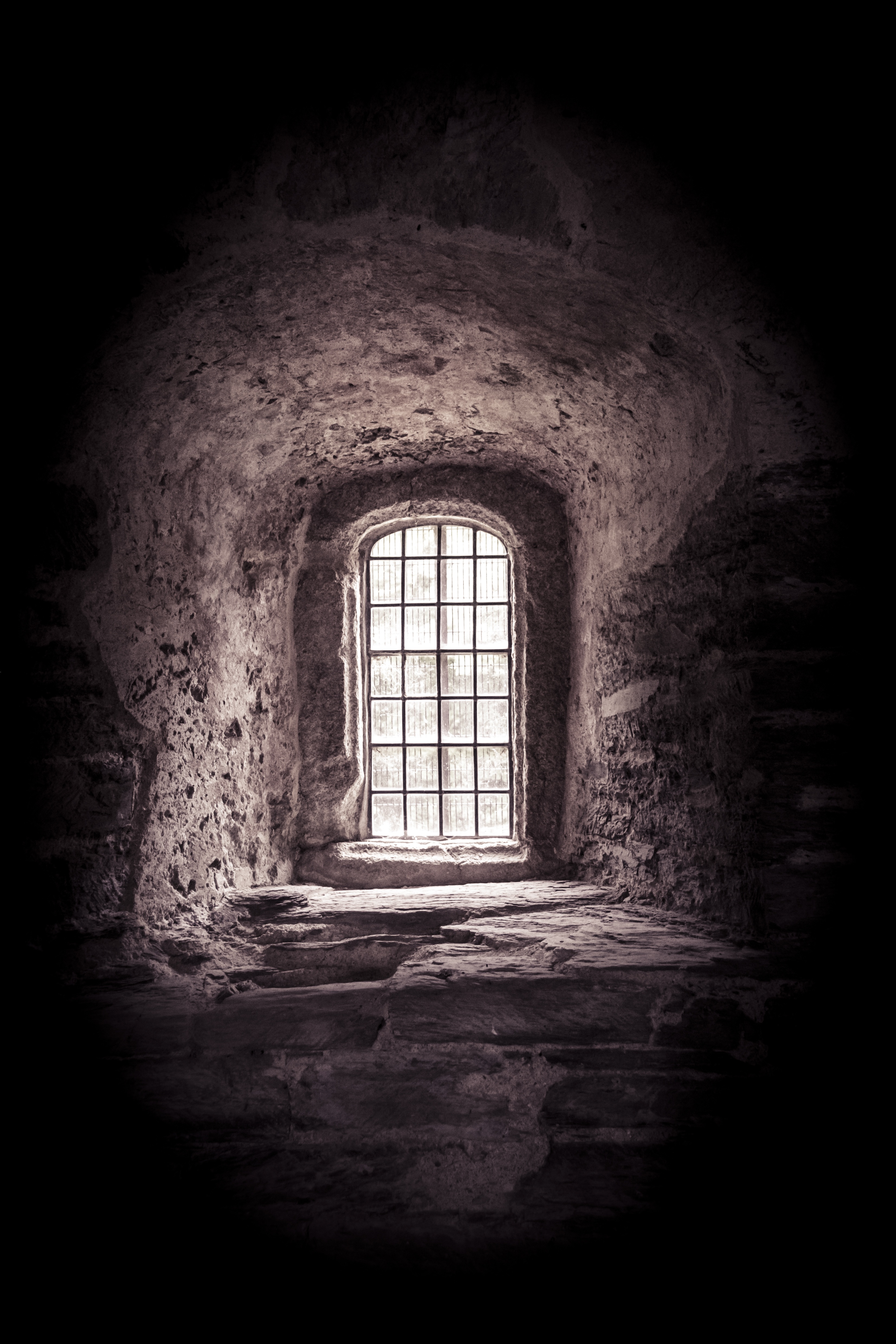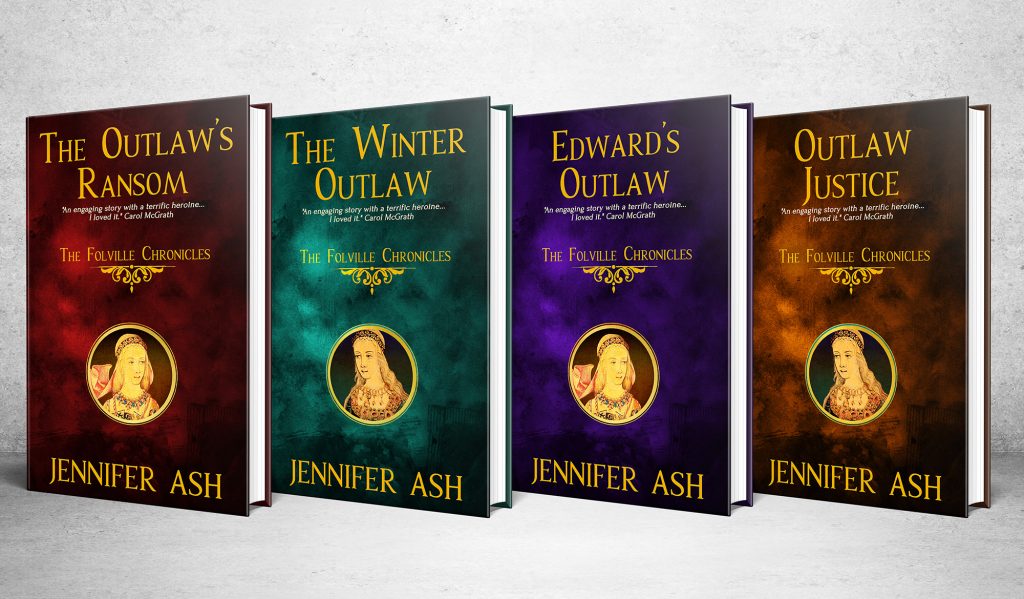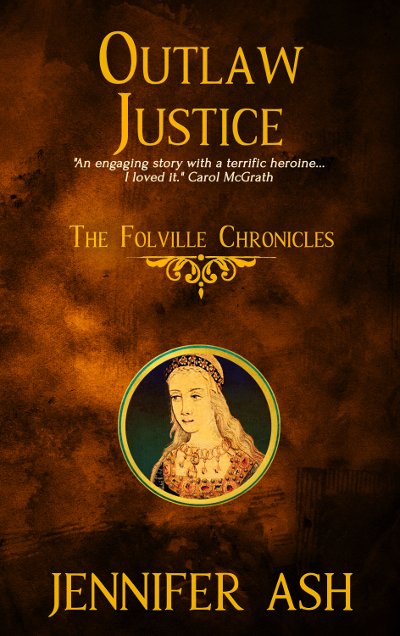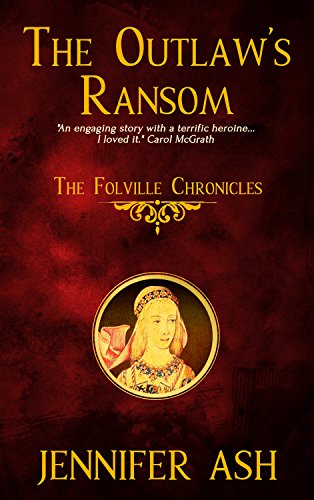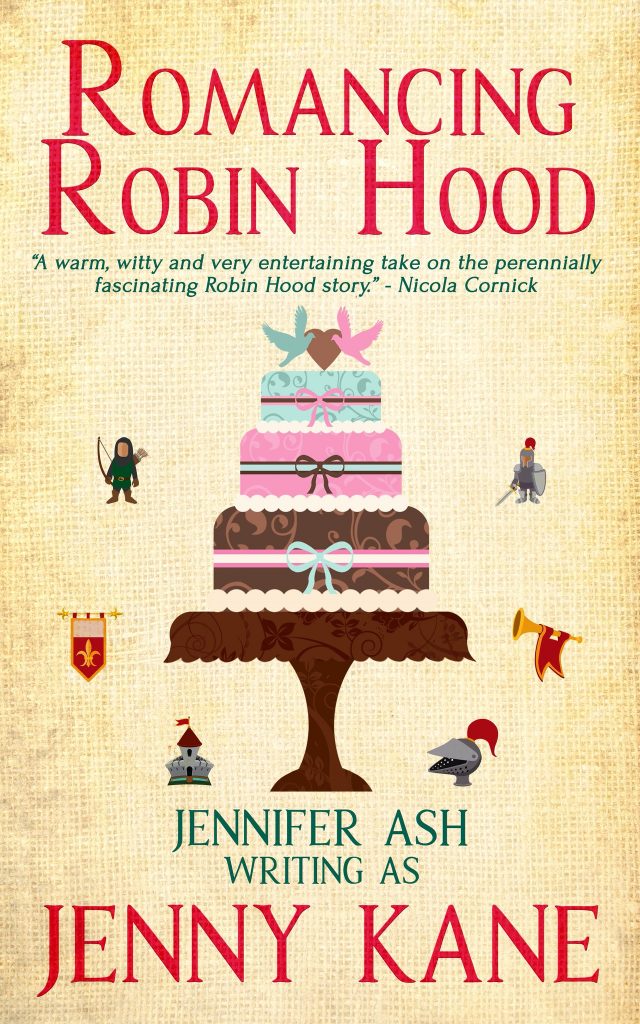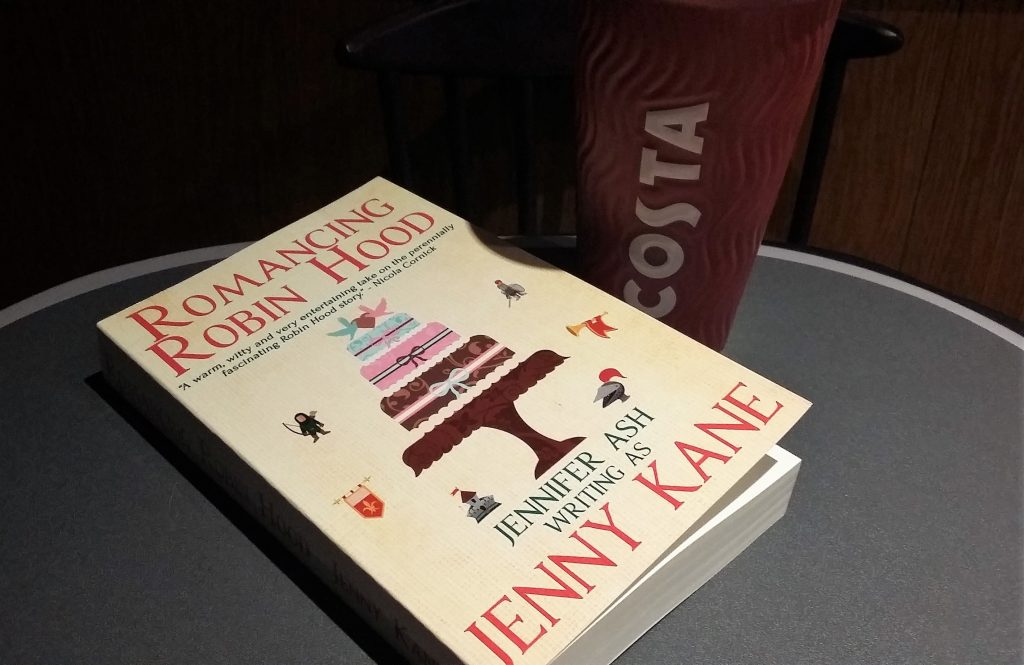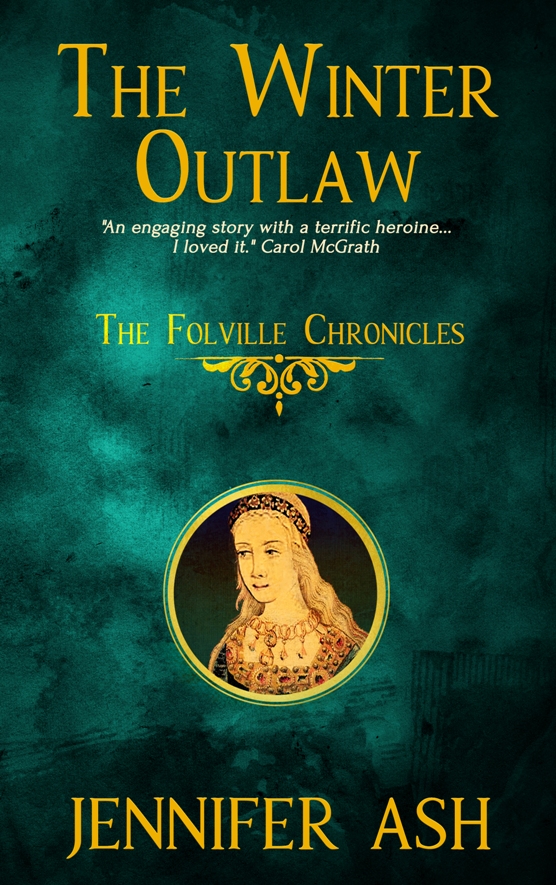Although it cannot be categorically stated that the compilers of the Robin Hood ballads were influenced by the actual criminal gangs of the day, it is highly likely. Why wouldn’t the writers of the past be influenced by the political and local economic situation around them, just as we are today? If you study the literature and the criminal records of the thirteenth and fourteenth centuries- as I did for five years- many similarities can be noted between the actions of gangs like the Folvilles, and those detailed in the ballads and political songs.
The earliest mention found (to date) of the name Robin Hood in literature appears in the poem The Vision of Piers Plowman, which was written by William Langland in c.1377. This was a protest poem complaining about the harsh conditions endured by the poor in the Fourteen Century. Not only did it mention Robin Hood, but it also makes reference to a real outlaw gang, the Folvilles.
“And some ryde and to recovere that unrightfully was wonne:
He wised hem wynne it ayein wightnesses of handes,
And fecchen it from false men with Folvyles lawes.”
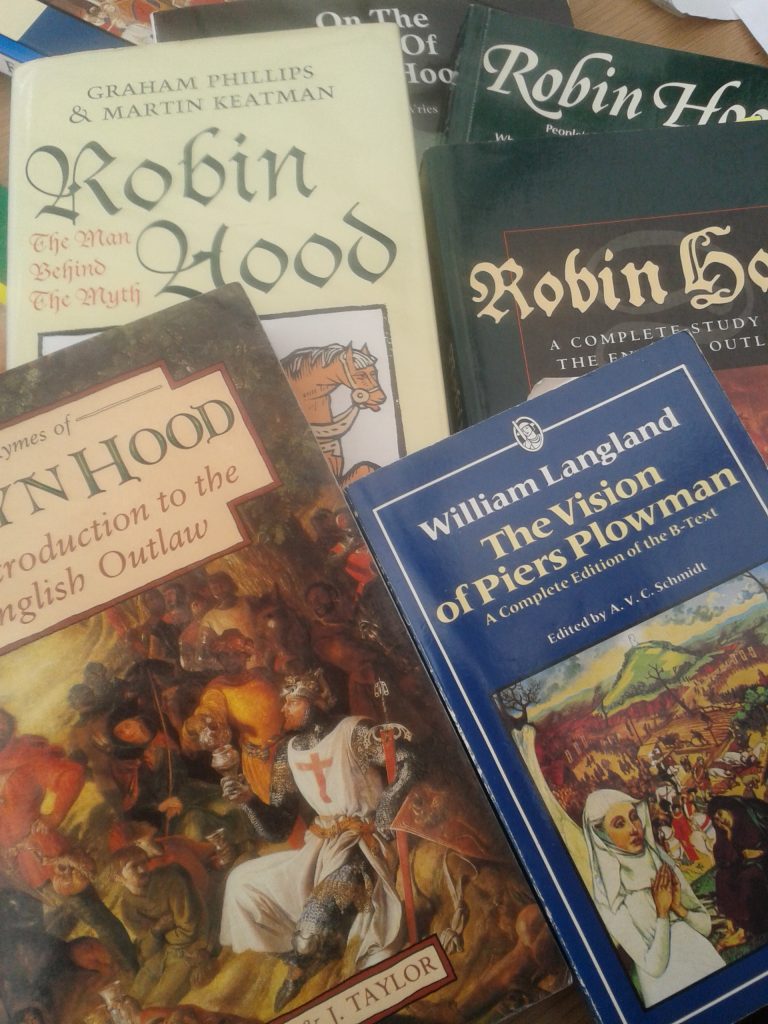
In 1310, John de Folville, Lord of Ashby Folville, died, leaving his widow Alice and seven sons. The eldest son, also John, inherited the Ashby-Folville manor. Historical records show that John lived largely within the bounds of the law. However, his brothers, Eustace, Laurence, Richard, Robert, Thomas and Walter formed a criminal gang which became notorious. Between the mid 1320’s and 1330’s, the Folville brothers ran the town of Ashby Folville and its surrounds as a base for criminal activity.
The first crime that brought the Folvilles to the notice of the authorities was the murder of the Baron of the Exchequer, Roger Belers. Over the following decade, the Folville brothers’ travelled the countryside assaulting those they considered deserving of such treatment, and holding people and places to ransom. They hired themselves out as mercenaries, willing to commit crimes for the right price. In fact, if you look closely enough at the criminal activities of the Folville family and the Robin Hood ballads, you’ll see a great number of similarities. So many in fact, that I began to wonder if the ballad writers had been influenced by the actions of Folvilles – or if Folvilles had been influenced by the popularity of the ballads.
It was this latter theory that forms the inspiration behind The Folville Chronicles (The Outlaw’s Ransom, The Winter Outlaw, Edward’s Outlaw and Outlaw Justice).
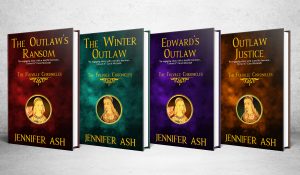
These medieval murder mysteries show Robert de Folville and his brothers using the ballads of Robin and his outlaws as a code of behaviour. Be warned however- this isn’t the code of behaviour we associate with Robin Hood today. There’s no robbing the rich to give to the poor in the fourteenth century. The original ballads were all about punishing the greedy, lazy and the cruel. There was never any question of any money gained from such punishments being given away.
Perhaps it was inevitable that my doctoral research, combined with my love for the stories of Robin Hood, would eventually inspire my novels.
Writers, filmmakers and poets ever since the tales were first spoken, have all adapted the outlaw figure to fit their imagination, and to appeal to the audience of the age. The Robin Hood needed by the fourteenth century listener isn’t going to be the same one demanded of the Tudor population, and that version of the hero has been reinvented again and again ever since. From the wonderfully thigh slapping Errol Flynn, the mystical Robin’s portrayed by Michael Praed and Jason Connery in the 1980’s, to the pantomime figure presented in the late 90’s by Kevin Costner, and the PVC nightmare of the most recent incantation by Taron Egerton…perhaps each generation gets the Robin Hood it deserves?
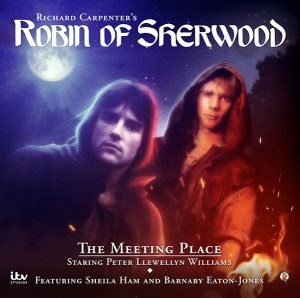
In 1332 the Folville gang committed their most serious crime. They kidnapped the Justice of the Peace, Sir Richard Willoughby, on the road between Melton Mowbray and Grantham, near Waltham-on-the-Wolds. A ransom of 1,300 marks was demanded for his safe return. While the Folvilles’ waited for the ransom to be paid, they stole over a hundred pounds of goods from Willoughby, while they dragged him from wood to wood.
The implications of Willoughby’s kidnap were fair reaching. However, to go into them here would be to ruin the aforementioned fourth novel. I will say however, that the kidnap and ransom of nobles passing through their land, the targeting of corrupt officials, and the general gang activity employed by the Folvilles, echo similar incidents within the Robin Hood ballads, from The Lytell Geste to the later tales, such as Robin Hood and Guy of Gisborne.
Rather than tell the story of the Folville brothers through their eyes, I introduced an outsider; a fictional protagonist to see their world with fresh eyes. Enter Mathilda of Twyford.
We first meet Mathilda in Book One of the Chronicles, The Outlaw’s Ransom. A nineteen year old unmarried woman, Mathilda’s life revolves around looking after her father and brothers, running the home and the family pottery business since the death of her mother. Her life changes abruptly when she is forced to get to know the notorious Folville family rather better than she would have liked – and Mathilda finds herself surrounded by criminals and under a very frightening type of suspicion…
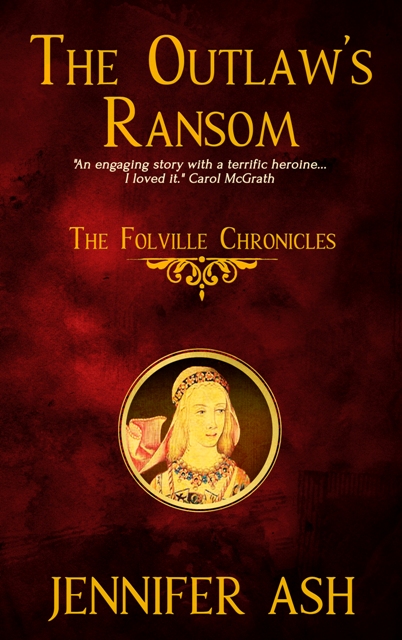
Blurb- The Outlaw’s Ransom
When potter’s daughter Mathilda is kidnapped by the notorious Folville brothers as punishment for her father’s debts, she fears for her life. Although of noble birth, the Folvilles are infamous throughout the county for using crime to rule their lands—and for using any means necessary to deliver their distinctive brand of ‘justice’.
Mathilda must prove her worth to the Folvilles in order to win her freedom. To do so, she must go against her instincts and, disguised as the betrothed of Robert de Folville, undertake a mission that will send her to Bakewell in Derbyshire, and the home of Nicholas Coterel, one of the most villainous men in England.
With her life in the hands of more than one dangerous brigand, Mathilda must win the trust of the Folville’s housekeeper, Sarah, and Robert Folville himself if she has any chance of survival.
Never have the teachings gleaned from the tales of Robyn Hode been so useful…
Extract from The Outlaw’s Ransom
…The Folville didn’t say anything else, but satisfied himself with watching Mathilda as she stood, half bowed, before him. She wasn’t shaking now. He’d noticed how hard she had fought within herself to still her external reactions to his news of her change in circumstance and had admired her self-control. It was almost as if she had an offended dignity about her rather than terror; an unusual reaction from a prisoner in the presence of a Folville.
He wondered if she’d been taught her letters. Most families didn’t waste their time teaching their womenfolk such things, but Mathilda of Twyford was clearly sharp and capable. With her mother gone, she’d run the household, and he imagined she did that job well. He saw that his family’s plan for this girl might work, but only if she kept that nerve. Otherwise… well, she wouldn’t be the first to die during his family’s quest to maintain their position.
Breaking the silence that had stretched out between them he said, ‘I recall you have questions for me. I can see your head jarring with them.’
‘If I may, my Lord?’
‘You may, although I should caution you, I may not choose to offer a reply.’
Mathilda licked her lips and ran her clammy palms down her grubby belted surcoat, which largely hid her brother’s leather hose, and flexed her numb bare toes.
‘Please, my Lord, who are you?’
This produced a bark of laughter, ‘You are well-mannered despite the indignity of being thrust, if only for a short while, into our cell. I am Robert de Folville, one of seven brothers of this manor.’
Mathilda curtsied, more out of natural impulse than any feelings of reverence towards this man, whom she knew for certain, had been party to at least one murder. ‘You are kin to my Lord Eustace, my Lord?’
‘Yes, girl, I am.’ He cocked his head to one side. ‘That worries you?’
‘He is a man I have been taught to fear, forgive my impudence, my Lord.’
He snorted. ‘I would rather have honest impudence than bluff and lies. So, you have been instructed by your father to be wary of us?’
‘Not only my father, sir.’ Abruptly worried that her boldness might place her family in more danger, Mathilda clamped her mouth shut. Seeing, however, that the Folville wasn’t cross, but had an expression of acceptance on his face, Mathilda braved a further question.
‘Where is my father, my Lord, and Matthew and Oswin, my brothers?’
Robert de Folville paused and, after a moment’s consideration, gestured for the servant boy to bring her a chair. Mathilda was glad to be allowed to sit down, but was puzzled at the equal status she was being afforded after her earlier abuse, as Folville sat next to her, leaning uncomfortably close to her slight, tense frame….
***
I never dreamt, back when I was a medieval history student at the University of Leicester, that I’d be a writer one day. Nor did I think I’d use all the research I did back then to create fictional adventures based on historical events.
I honestly can’t believe my luck.
BUY LINKS
The Outlaw’s Ransom – The Folville Chronicles Book One
The Winter’s Outlaw – The Folville Chronicles Book Two
Edward’s Outlaw – The Folville Chronicles Book Three
Outlaw Justice – The Folville Chronicles Book Four
The first three novel are also available as an e-boxset – https://www.amazon.co.uk/Folville-Chronicles-Box-Set-Books-ebook/dp/B07V387V3K/ref=sr_1_1?keywords=The+Folville+Chronicles+Box+set&qid=1572970631&sr=8-1
You can also find the Robin of Sherwood audio scripts I’ve written here – www.spitefulpuppet.com
Happy reading,
Jen x

